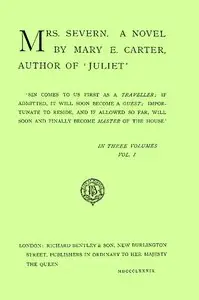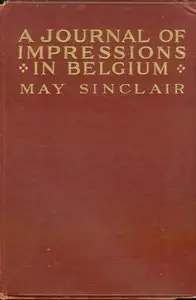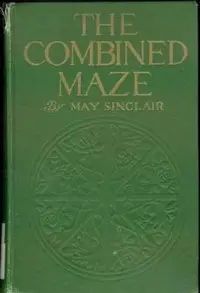"The Tysons (Mr. and Mrs. Nevill Tyson)" by May Sinclair is a story set in the village of Drayton Parva, where the arrival of the unconventional Mr. Nevill Tyson stirs up the established social order and captures the attention of Miss Batchelor. The narrative follows Mr. Tyson and his wife, Molly, as they navigate the complexities of social expectations and personal desires within their marriage, revealing his adventurous past and her carefree nature while hinting at the underlying chaos of their life together, challenging the traditional roles expected of them by the curious and judgmental gentry in their rural English community.

The Tysons (Mr. and Mrs. Nevill Tyson)
By May Sinclair
In a quiet village, a marriage is put to the test as a couple's unconventional ways clash with the rigid expectations of society, inciting intrigue and judgment.
Summary
About the AuthorMay Sinclair was the pseudonym of Mary Amelia St. Clair, a popular British writer who wrote about two dozen novels, short stories and poetry. She was an active suffragist, and member of the Woman Writers' Suffrage League. She once dressed up as a demure, rebel Jane Austen for a suffrage fundraising event. Sinclair was also a significant critic in the area of modernist poetry and prose, and she is attributed with first using the term 'stream of consciousness' in a literary context, when reviewing the first volumes of Dorothy Richardson's novel sequence Pilgrimage (1915–1967), in The Egoist, April 1918.
May Sinclair was the pseudonym of Mary Amelia St. Clair, a popular British writer who wrote about two dozen novels, short stories and poetry. She was an active suffragist, and member of the Woman Writers' Suffrage League. She once dressed up as a demure, rebel Jane Austen for a suffrage fundraising event. Sinclair was also a significant critic in the area of modernist poetry and prose, and she is attributed with first using the term 'stream of consciousness' in a literary context, when reviewing the first volumes of Dorothy Richardson's novel sequence Pilgrimage (1915–1967), in The Egoist, April 1918.













